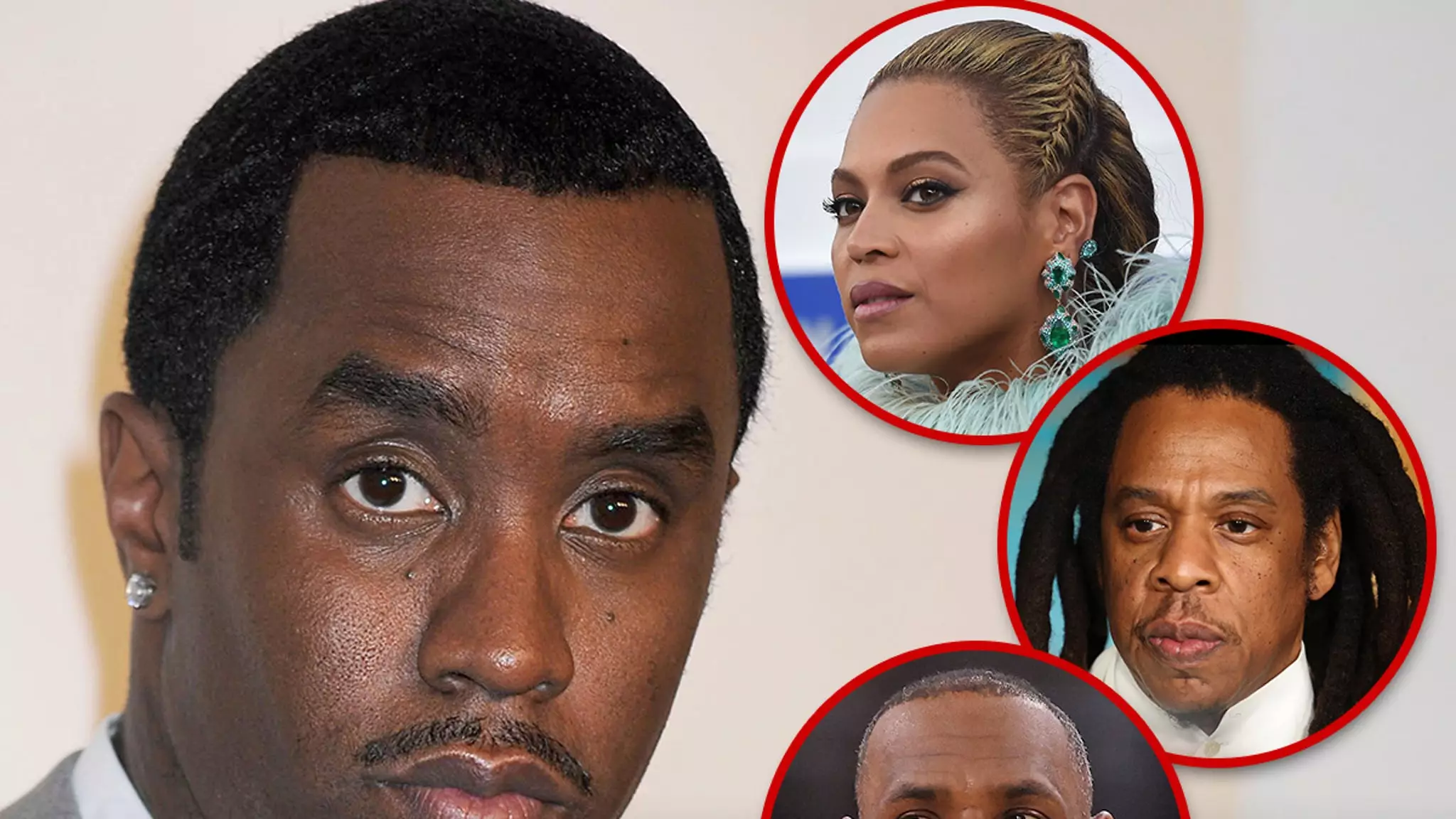Joseph Manzaro has stepped into a maelstrom of controversy, levelling alarming accusations against renowned music mogul Sean “Diddy” Combs. The allegations are harrowing: Manzaro claims to have endured horrific experiences of sexual assault and human trafficking at a party branded as a “freak-off” in Miami in April 2015. This incident purportedly took place during a lavish birthday celebration for Diddy’s son, King Combs, and has garnered significant media attention due to the high-profile influencers allegedly present. Even more shocking is the assertion that celebrities like Jay-Z, Beyoncé, LeBron James, and Gloria Estefan witnessed the events, casting a long shadow of complicity over the entire affair.
The details of Manzaro’s lawsuit, as reported, are graphic and unsettling. He alleges that he was both drugged and humiliated, reduced to a spectacle of degradation meant to belittle and traumatize. This cascade of horrors began, according to Manzaro, with him being transported against his will to a venue where he claims he was physically restrained and violated. What elevates this situation beyond mere sensationalism is the underlying implication of systemic abuse that the accusations suggest—abuse that thrives in the shadows of celebrity culture and powerful networks.
The Role of Celebrity Witnesses
One of the most disconcerting facets of this narrative is the alleged presence of prominent figures, including Jay-Z and Beyoncé, who seemingly observed Manzaro in a state of utter humiliation. His recounting paints a picture of a lavish Hollywood gathering where degradation was not merely tolerated but enacted for amusement. The implication that these stars were aware of the allegations, yet silent, raises ethical questions about their complicity and moral accountability.
Manzaro’s experiences illuminate a broader issue: the culture of silence that often envelopes elite circles. When individuals with significant social influence choose to remain bystanders—whether out of fear, ignorance, or a desire to protect their status—serious harm can be perpetuated. In this case, it suggests that the horrors of sexual exploitation and human trafficking may not always occur in isolation but can thrive amid fame and power, hidden just beneath the surface of celebrated lives.
The Psychological and Physical Toll of Dehumanization
The psychological ramifications of such experiences cannot be overstated. Manzaro claims that he was physically manhandled, stripped of his dignity in front of a crowd that jeered at his vulnerability. These alleged actions create an environment in which dehumanization becomes a form of entertainment, further exacerbating trauma and reinforcing toxic dynamics.
The elements of branding and ownership that permeate celebrity culture serve to objectify individuals, reducing them to mere entities for public consumption. Manzaro’s ordeal exemplifies this degrading process, challenging us to confront our own complicity as consumers of entertainment. Are we merely spectators to pain, or do we hold a responsibility to denounce and challenge these behaviors?
The Legal Implications and Accountability
As Manzaro pursues legal action on grounds of human trafficking, the implications for Diddy and his associates could be monumental. Lawsuits like this not only seek financial reparation but can also catalyze much-needed discussions about accountability among the elite. This situation serves as a clarion call for reform—demanding that institutions, individuals, and communities take a stand against misconduct.
However, as with any high-profile legal battle, skepticism exists on both sides. Diddy’s legal representatives have denounced the allegations as unfounded, suggesting that this lawsuit is merely a ploy for publicity and financial gain. In many ways, this narrative echoes the famous trope of the “star victim,” where genuine experiences may be woven into fabrications for the sake of a headline. The challenge lies in discerning authenticity amidst sensationalism, as the line between victim and opportunist often blurs in the public eye.
The Broader Cultural Conversation
Ultimately, the predicament faced by Manzaro forces an examination of societal values, particularly regarding fame, power, and their capacity to shield individuals from consequences. In a world where the rich and famous often dictate cultural norms, one must question what it will take for the systemic issues of sex trafficking and sexual violence to be addressed earnestly.
With an increasing number of allegations against powerful figures surfacing, the collective consciousness is at a crossroads. Manzaro’s claims may represent one individual’s torment, but they also symbolize a crucial moment for widespread cultural reckoning. It challenges all of us—fans, consumers, and society at large—to reconsider the narratives surrounding fame and the responsibilities we bear in confronting injustices that, for far too long, have been allowed to persist in the shadows.

